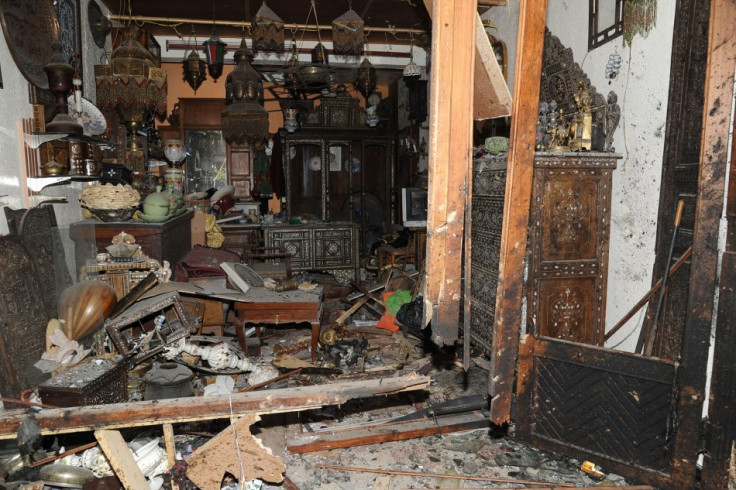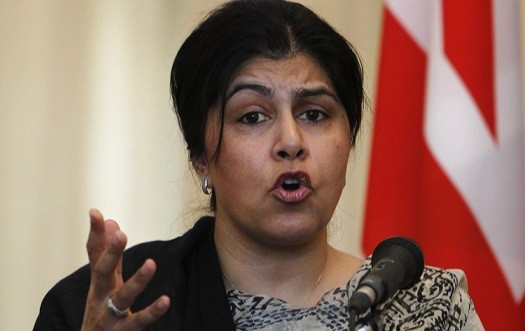Christians 'Driven to Extinction' in Middle East, Warns Baroness Warsi

Christianity is in danger of becoming extinct in the countries where it was founded because of persection, a senior Tory has warned.
Baroness Warsi, the government's minister for faith and communities, claimed that Christians were being driven out of Middle Eastern countries such as Iraq and Syria by being targeted for "collective punishment" for the actions of Western powers.
The civil war in Syria and the volatile situation in Iraq have also seen many Christians leave the countries where the religion first took root.
Warsi expressed her concerns in a speech at Georgetown University in Washington where she called for countries like Pakistan to "set the tone" for tolerance of minority religious groups.
Warsi told BBC Radio 4's Today programme: "I am concerned that the birthplace of Christianity, the parts of the world where Christianity first spread, is now seeing large sections of the Christian community leaving and those that are remaining feeling persecuted.

"Tragically, what's happening is they are being seen as newcomers, being portrayed as an 'other' within that society, even though they have existed there for many, many centuries.
"What we are seeing, sadly, is a sense of collective punishment meted out by local groups - sometimes states, sometimes extremists. [Christians] are seen as legitimate targets for what are perceived as actions of their co-religionists.
"This concept of collective punishment and them being seen as agents of the West or agents of regimes is wrong," she continued. "We need to speak out and raise this with the countries where this is happening."
The Foreign Office minister said that one in 10 Christians lives in a minority.
Warsi, who was Britain's first female Muslim cabinet minister, wrote in the Daily Telegraph that the Christian population in Iraq had fallen from 1.2 million in 1990 to 200,000 today. She added that the war in Syria had "masked the haemorrhaging" of its Christian population.
She added: "There's an international consensus, in the form of a Human Rights Council resolution on the treatment of minorities and tolerance towards other faiths. But we need to build a political will behind that.
"Of course there have been moments when religious communities have been in conflict but there have also been great moments of co-existence between faiths. There isn't an intrinsic clash between different faiths."
The Archbishop of Westminster, Vincent Nichols, said: "There are real challenges for Christians in this part of the world and for politicians to understand that the presence of Christians is a great mediating factor, often, for example, between different segments of Islam."
© Copyright IBTimes 2025. All rights reserved.






















